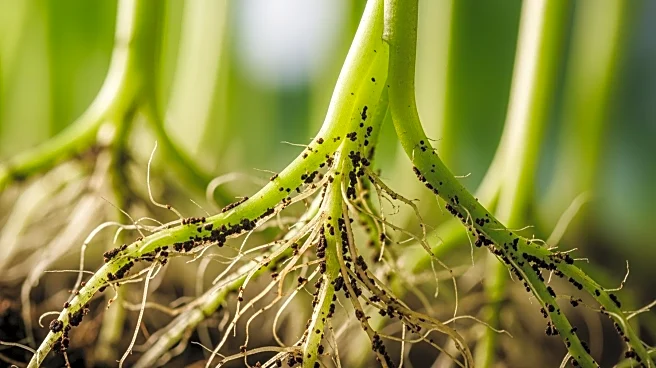What's Happening?
Researchers at Penn State have developed a novel technique to study soil microbes, revealing that microbial activity is more crucial than abundance for colonizing plant roots. The study, published in mSystems,
found that active microbes in the rhizosphere are more likely to colonize plants than dormant ones. This discovery could lead to sustainable agricultural practices by modulating microbial communities to enhance nutrient uptake and disease resistance in plants.
Why It's Important?
Understanding the role of microbial activity in plant colonization can revolutionize sustainable agriculture practices. By focusing on active microbes, farmers can potentially improve crop yields and resilience without relying on chemical fertilizers and pesticides. This research aligns with global efforts to enhance agricultural sustainability and reduce environmental impact, offering new strategies for improving soil health and plant growth.
Beyond the Headlines
The study highlights the potential for using microbial activity as a natural solution to enhance plant health and productivity. This approach could lead to a shift in agricultural practices, prioritizing biological solutions over chemical interventions. The findings also underscore the importance of soil health in sustainable agriculture, offering insights into the complex interactions between plants and microbes.









